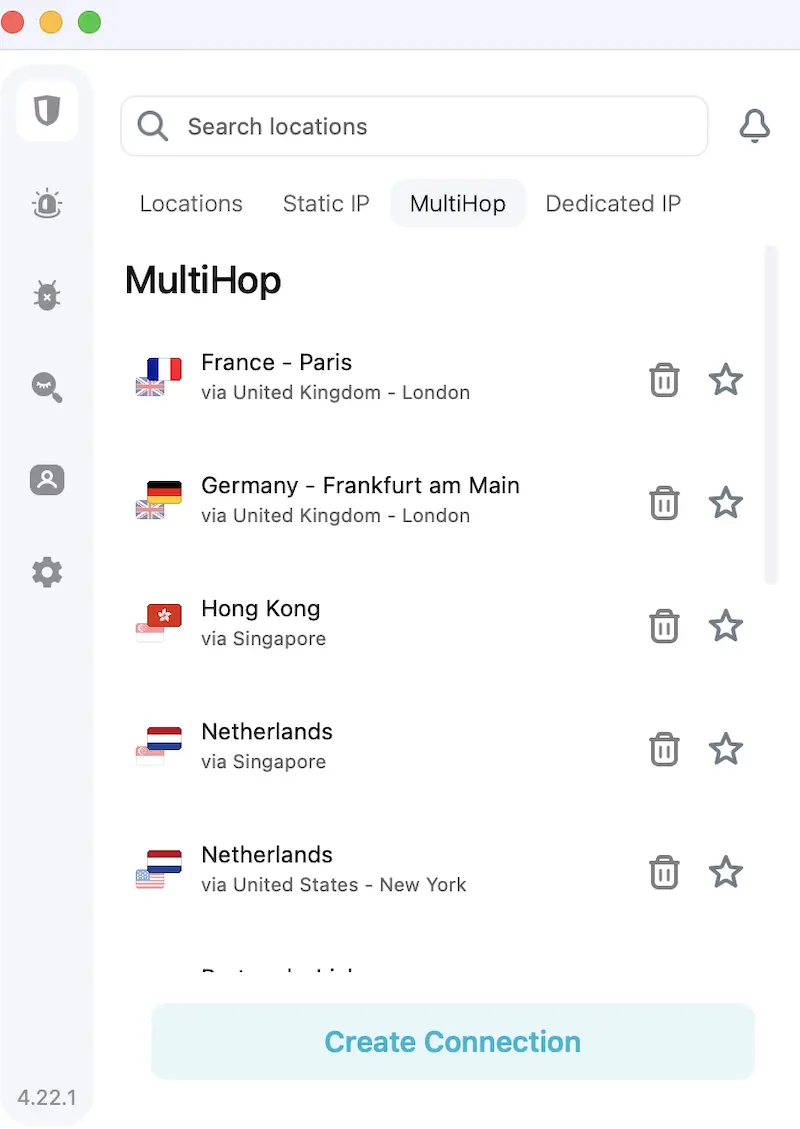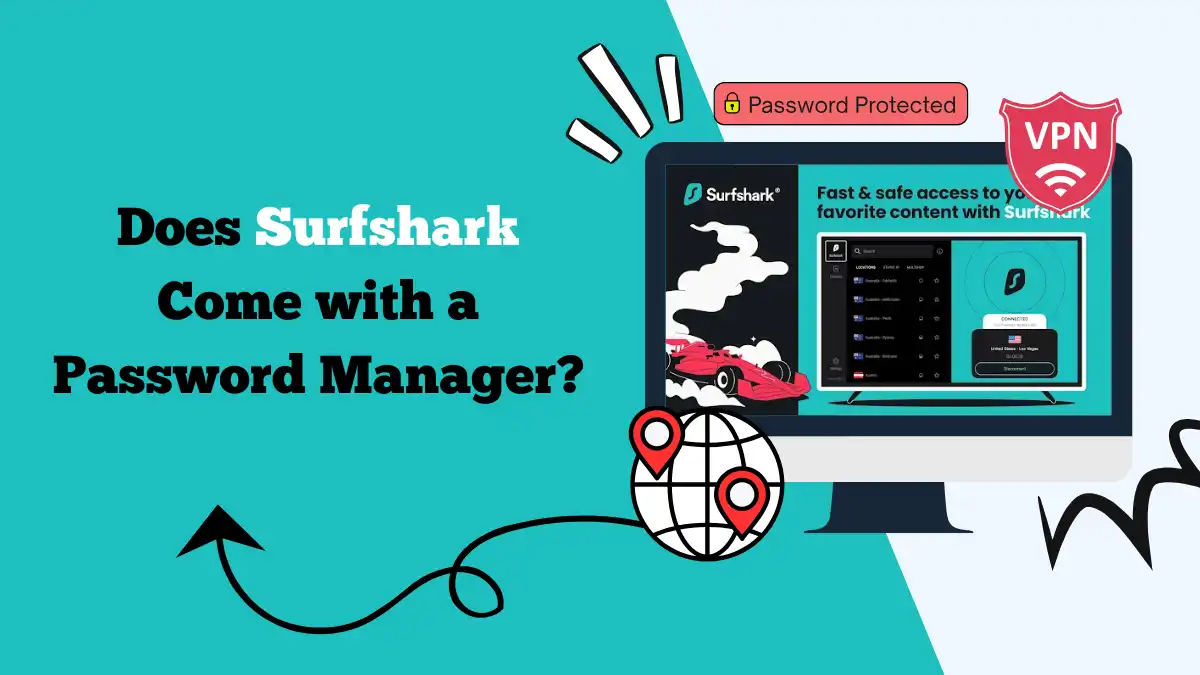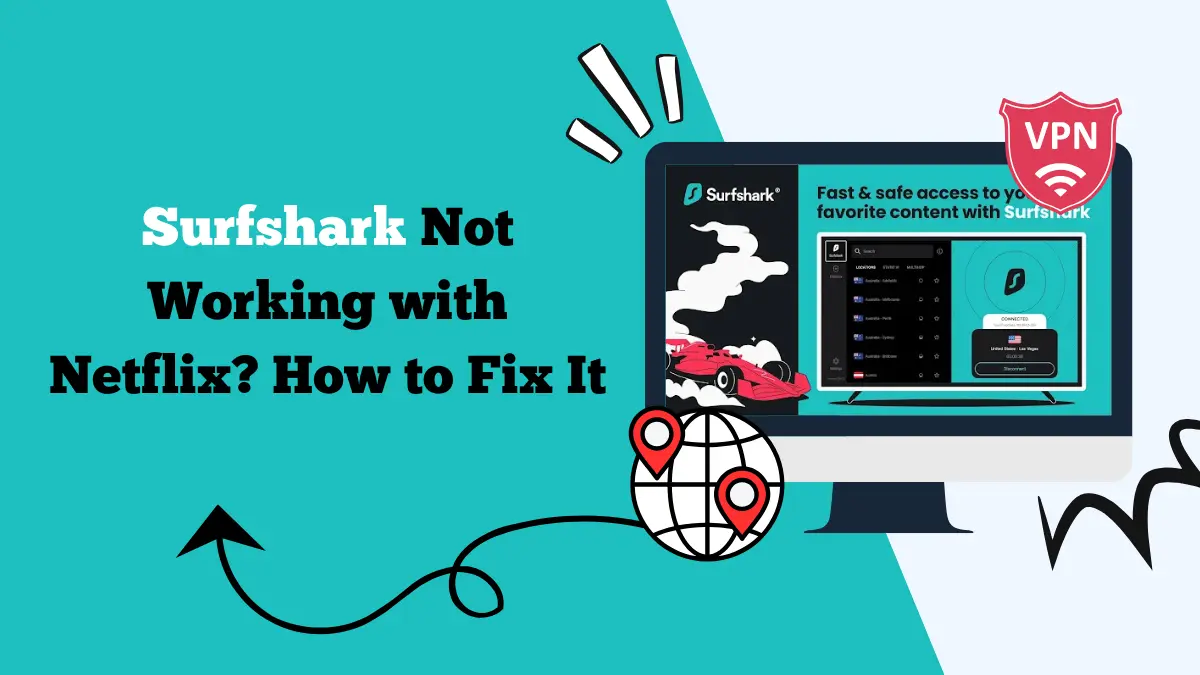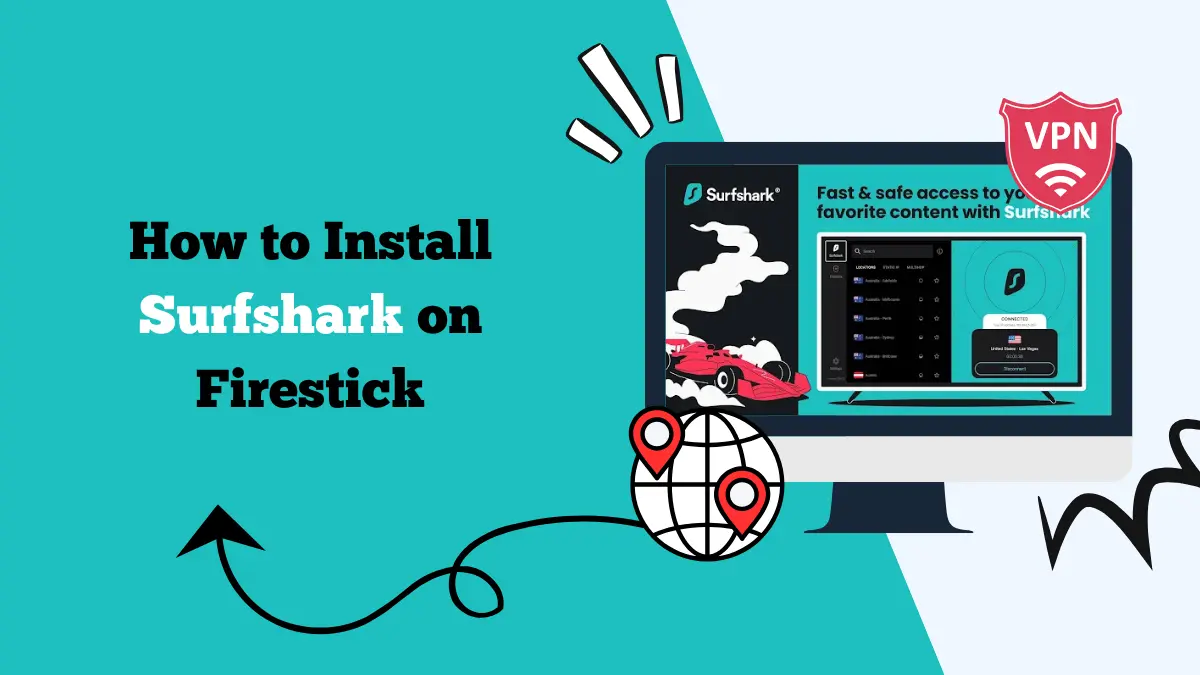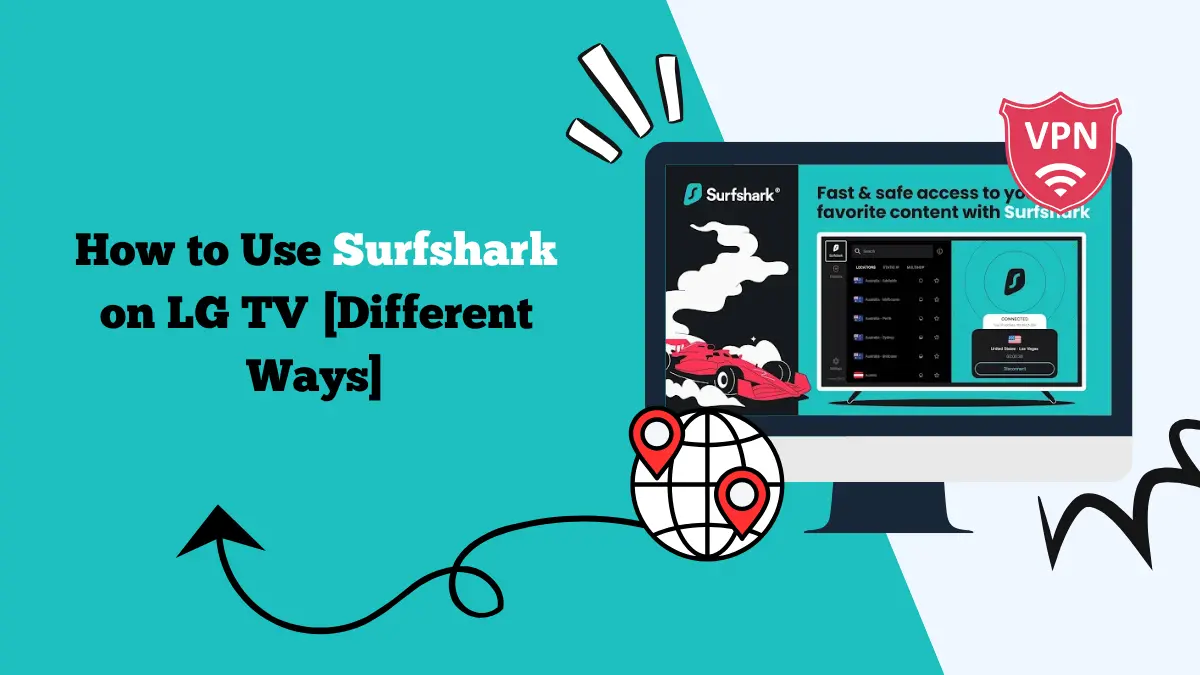What is Surfshark Multihop Feature and How to Enable It
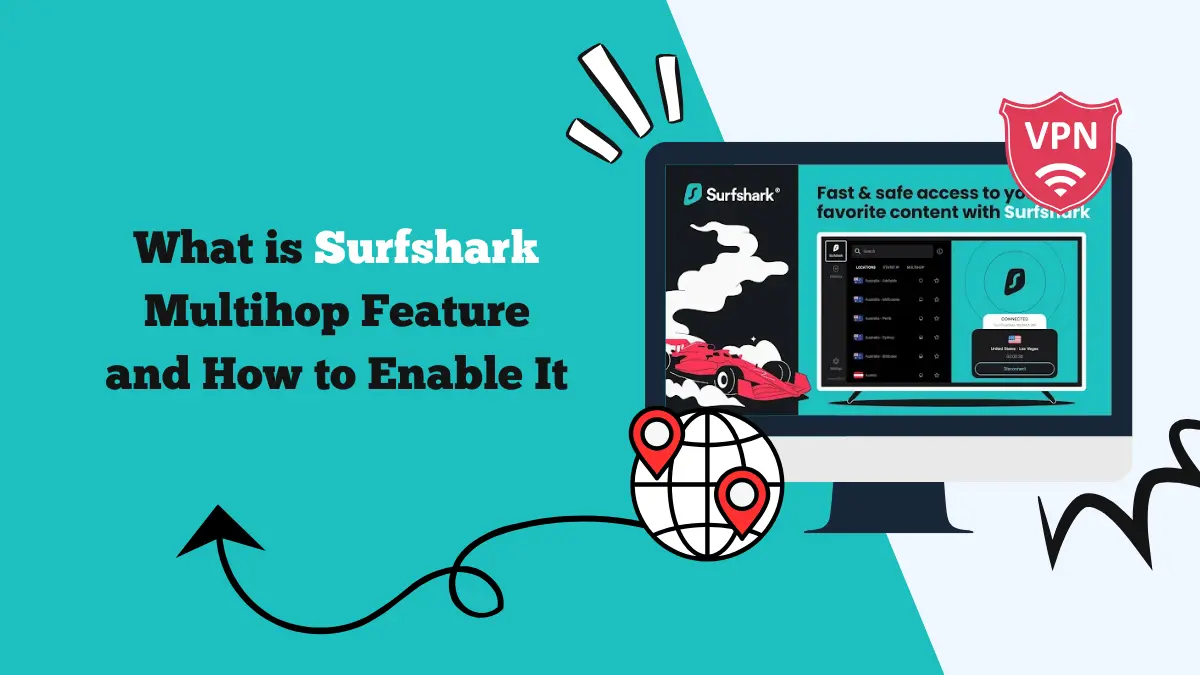
Surfshark has built its reputation as a reliable VPN with many unique features that focus on privacy, speed, and security. One of the standout tools in its arsenal is the Multihop feature.
This option takes the idea of online anonymity a step further by letting you connect through not just one, but two VPN servers. For many users, this becomes a powerful way to add an extra layer of security and protect personal information from tracking.
This guide will explain what the Surfshark Multihop feature is, how it works, why it is useful, and the steps you can take to enable it. By the end, you will have a clear understanding of whether this feature is right for your browsing needs.
What is Surfshark Multihop?
Multihop is a feature that routes your internet traffic through two different VPN servers instead of one. Normally, when you connect to a VPN, your internet connection is encrypted and sent through a single secure server before reaching the internet.
With Multihop, Surfshark adds a second server to the chain. For example, if you are located in the United States, you might first connect to a server in Germany and then pass through another server in the UK before your traffic reaches its final destination.
This double routing makes it even harder for third parties, governments, or hackers to track your online activities.
It is often referred to as double VPN or VPN chaining. This is especially useful for people who want to prioritize privacy above all else, such as journalists, travelers in regions with strict censorship, or anyone concerned about online surveillance.
How to Enable Surfshark Multihop
Setting up Multihop is simple, and Surfshark has made it accessible across all its apps. Here is a step-by-step guide:
- Download the Surfshark app on your laptop, smartphone, or tablet. Sign in with your account details and open the app.
- On the main screen of the app, you will find a section called “Multihop.” This is separate from the regular VPN server list.
- Browse through the list of available server pairs. You will see pairs like “US via Germany” or “UK via France.” Choose the one that fits your needs.
- Click on the chosen server pair. Surfshark will establish a secure connection through both servers. Once connected, you will see that your traffic is being routed through two locations.
- You can use an IP checking tool to confirm that your visible location matches the second server in the pair. This will ensure that Multihop is working correctly.
For more details on different devices, you can check out this guide.
How Does Multihop Work?
The process behind Multihop is straightforward but highly effective. When you enable this feature, Surfshark creates a secure tunnel between your device and the first server. After that, your traffic is forwarded to a second server. The second server then sends your data to the internet.
Each server encrypts your data, so you get two layers of encryption instead of just one. This double encryption makes it extremely difficult for anyone to trace your connection back to you. Even if someone tries to monitor your traffic at one point, the second server hides your actual location.
To keep things simple, you can imagine Multihop as taking two flights instead of one. You leave your home country, stop over in another one, and then finally reach your destination. Anyone watching will have a hard time figuring out where your trip started.
Surfshark also offers a NoBorders feature that is great for obfuscation.
Why Use Surfshark Multihop?
There are several reasons why users choose to enable the Multihop feature:
1. Stronger Privacy
When your data passes through two servers, it becomes much more difficult to trace your online activity back to you. This level of privacy is useful for people living in countries with strict online monitoring.
2. Added Security
The double encryption reduces the risk of data leaks or attacks. Hackers trying to intercept your information face extra obstacles, making it a safer option for sensitive tasks.
3. Avoiding Surveillance
Governments and ISPs may attempt to monitor connections. Multihop makes surveillance harder, ensuring your browsing activity stays private.
4. More IP Address Variety
Since you connect through two servers, you are assigned an IP address from the second location. This can help you appear as though you are in a completely different country, which may be useful for bypassing regional restrictions on streaming services and other websites.
5. Ideal for High-Risk Situations
If you handle sensitive information, such as journalism work, activism, or business communications, Multihop gives you an additional level of protection.
Does Multihop Affect Speed?
One thing to keep in mind is that Multihop may reduce your internet speed. Since your traffic travels through two VPN servers instead of one, it takes a slightly longer path. This does not mean the connection becomes unusable, but you may notice slower speeds compared to a single VPN server.
For everyday browsing, streaming, and casual use, you may not need Multihop. It is best suited for cases where privacy and security are more important than speed.
Surfshark’s Multihop Server Locations
Surfshark has set up specific server pairs for Multihop connections. These pairs are optimized for speed and security. For example, you might see options such as:
- France via UK
- US via Netherlands
- Germany via Singapore
- UK via Germany
Each option routes your traffic through two countries. You can choose the pair that best suits your needs. If you want to browse as if you are in Asia, you can select servers that end in Singapore. If you want a European presence, you can choose a pair with Germany or France.
When Should You Use Multihop?
Multihop is not something you need for every online activity. In fact, it is best used in specific situations:
- When you are traveling in countries with heavy censorship, like China.
- When working with sensitive data and you want maximum security.
- When avoiding government or ISP surveillance is a priority.
- When you want an extra barrier against hackers on public Wi-Fi.
- For streaming, gaming, or everyday browsing, you may prefer using a single server for better speeds.
Pros of Surfshark Multihop
- Enhanced privacy with two servers.
- Harder for trackers or ISPs to identify your real location.
- Easy to set up with a simple interface.
- Useful in sensitive or high-risk environments.
Disadvantages of Surfshark Multihop
- May cause slower connection speeds.
- Not necessary for casual browsing or streaming.
- Limited number of server pairs compared to single servers.
Final Thoughts
Surfshark’s Multihop feature is designed for users who value privacy above all else. By routing your connection through two servers and applying double encryption, it makes tracking, surveillance, and hacking attempts far more difficult.
Enabling the feature is easy, and Surfshark provides multiple server pair options for different locations. For most users, a single VPN server will be enough.
But if you want to add an extra layer of security, Multihop is a powerful tool that ensures your online presence remains private and protected.
